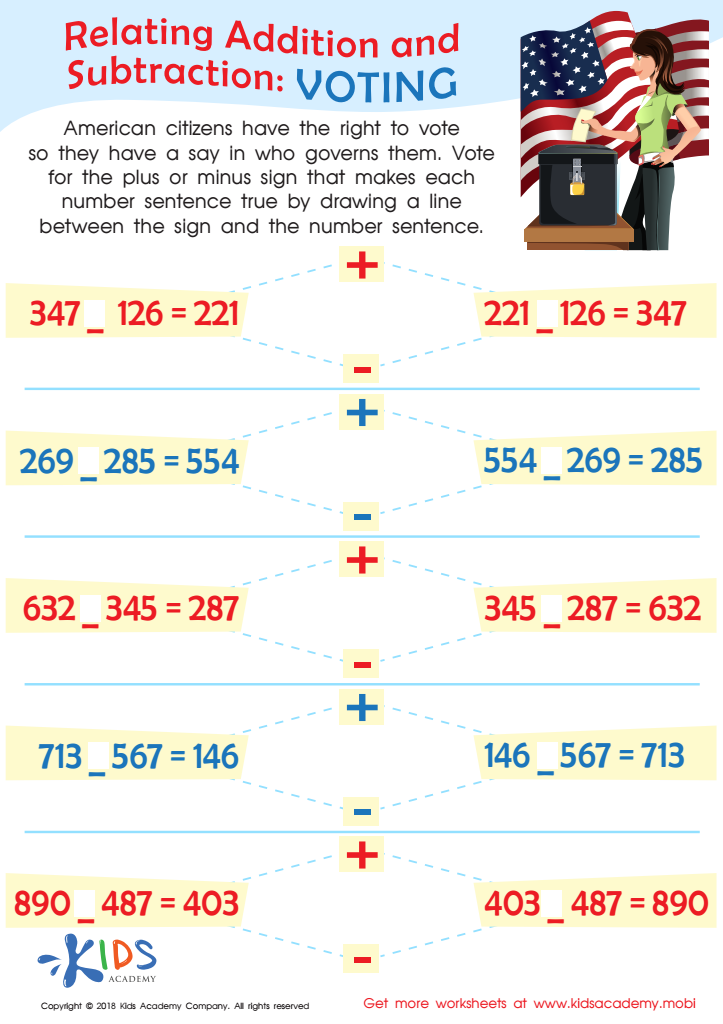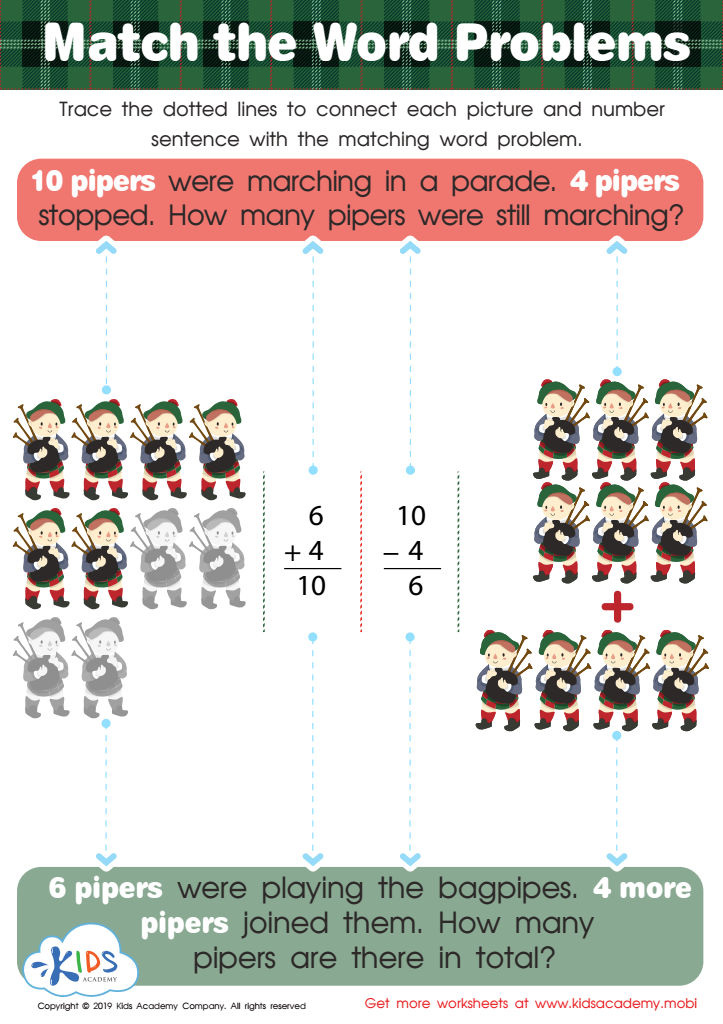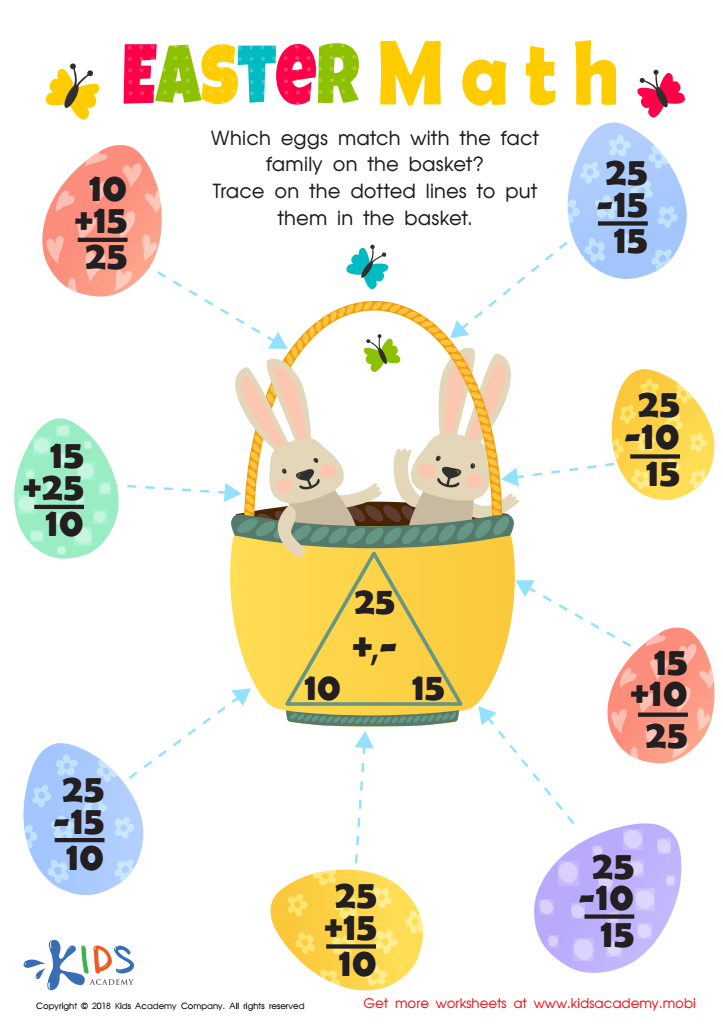Problem-Solving Skills Normal Subtraction Worksheets for Ages 4-8
3 filtered results
-
From - To
Unlock your child's potential with our engaging Problem-Solving Skills Normal Subtraction Worksheets designed for ages 4-8. These thoughtfully crafted activities help young learners grasp subtraction concepts while enhancing their problem-solving abilities. Each worksheet features fun illustrations and relatable scenarios that encourage critical thinking and application of math skills in real-world contexts. With varied exercises that cater to different learning styles, children will develop confidence and proficiency in subtraction. Ideal for home or classroom use, these worksheets provide a solid foundation for future math success, combining learning with enjoyment. Start your child's journey towards mathematical fluency today!


Voting Worksheet


Match the Word Problems Worksheet


Fact Families: Easter Math Worksheet
Parents and teachers should prioritize problem-solving skills in normal subtraction for children aged 4-8 because these foundational skills are crucial for overall cognitive development and academic success. At this age, children are not just learning how to subtract, but they are also developing critical thinking and reasoning abilities. Problem-solving in subtraction enhances their understanding of numbers, fosters logical thinking, and helps them make connections between mathematical concepts.
Engaging children in practical problem-solving scenarios encourages perseverance and resilience, teaching them to approach challenges with confidence. This stage of learning is also important for instilling a positive attitude towards mathematics, which can influence their interest in the subject as they grow.
Moreover, by promoting these skills early on, parents and teachers lay the groundwork for more complex mathematical concepts. Mastery of basic subtraction can lead to better performance in arithmetic operations, paving the way for success in higher mathematics. Lastly, collaborative problem-solving activities promote social skills and teamwork, making learning a creative and enjoyable process. In summary, developing problem-solving skills in normal subtraction at this critical age is a vital investment in a child's educational journey and lifelong learning tendencies.
 Assign to My Students
Assign to My Students
















